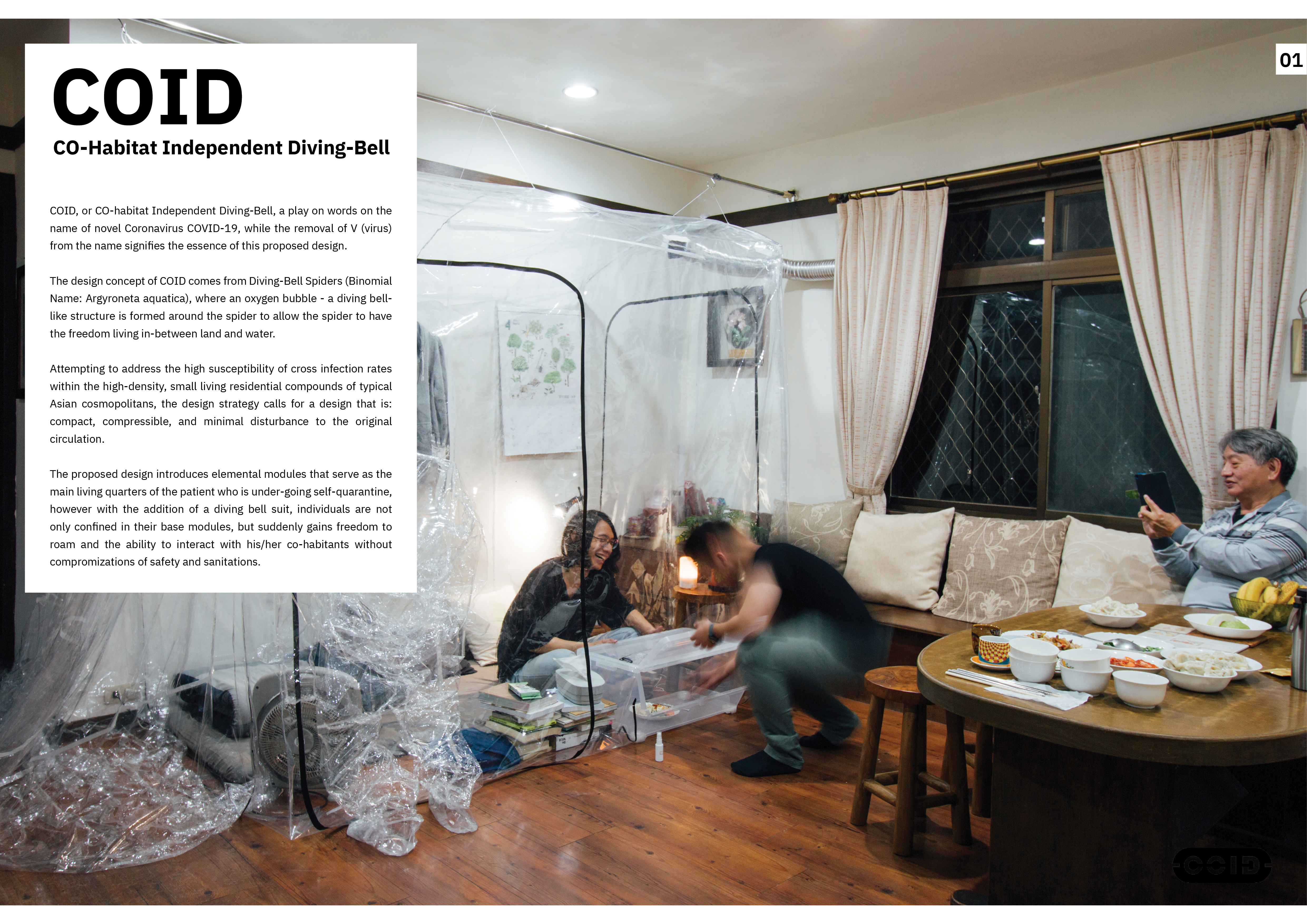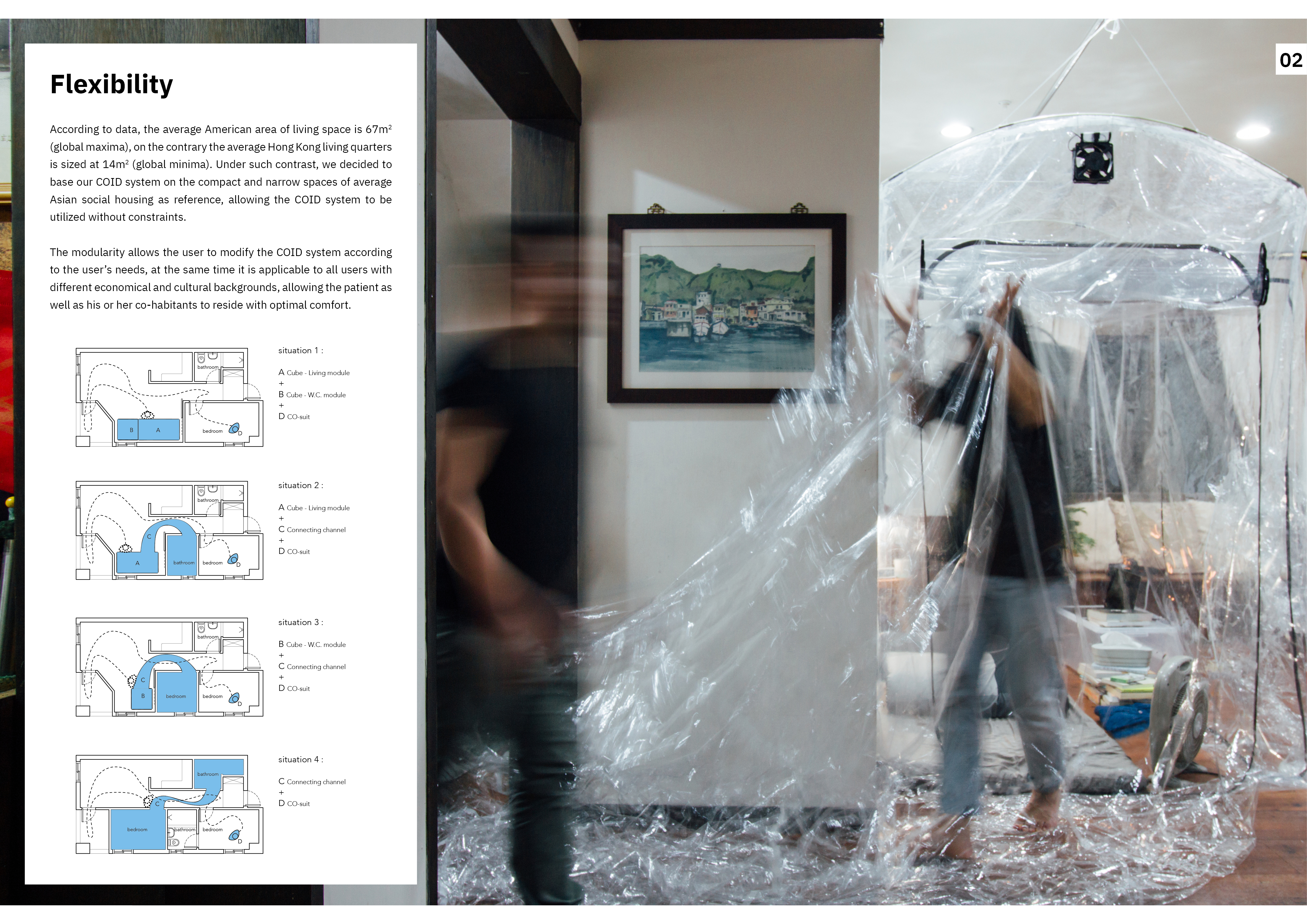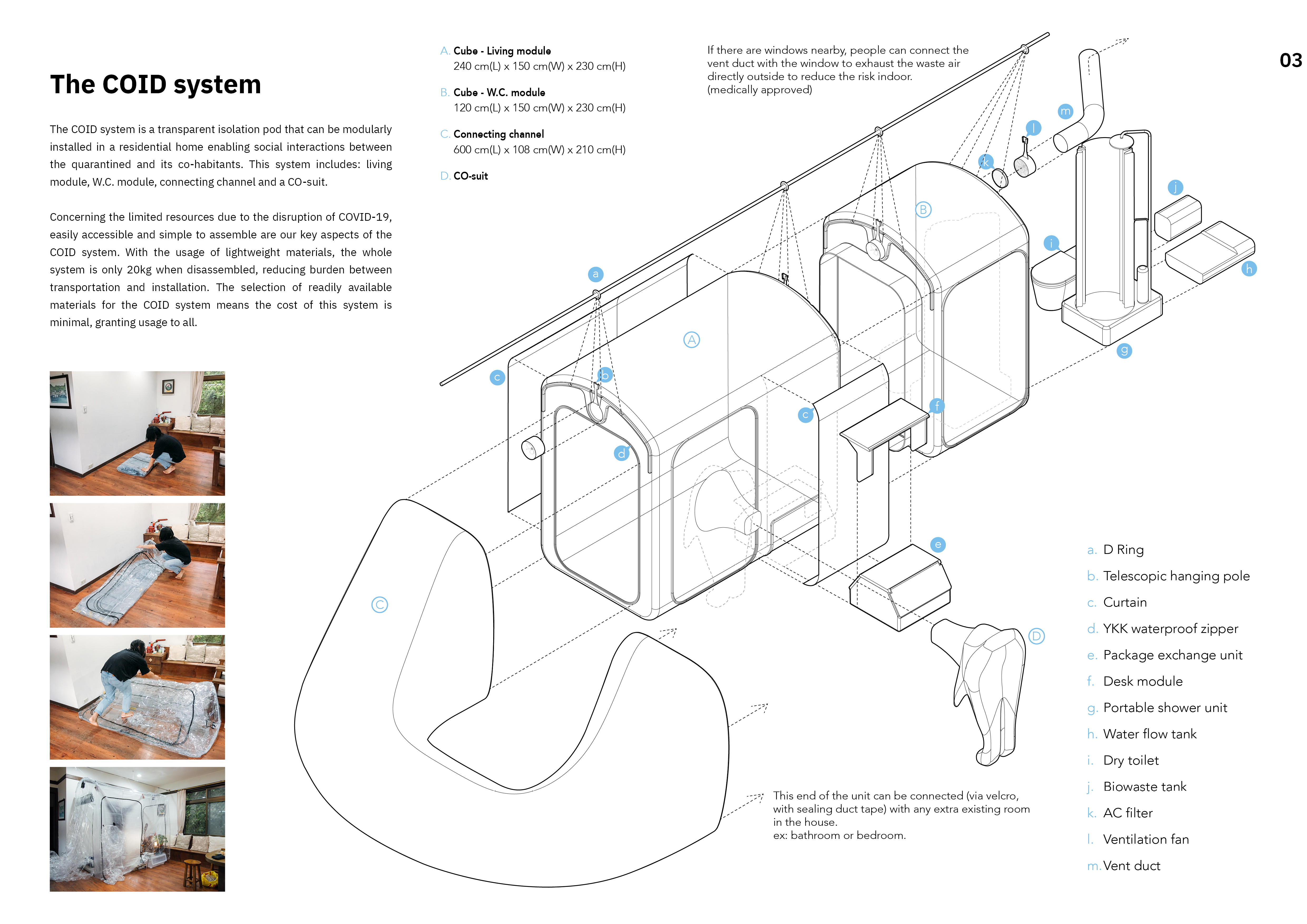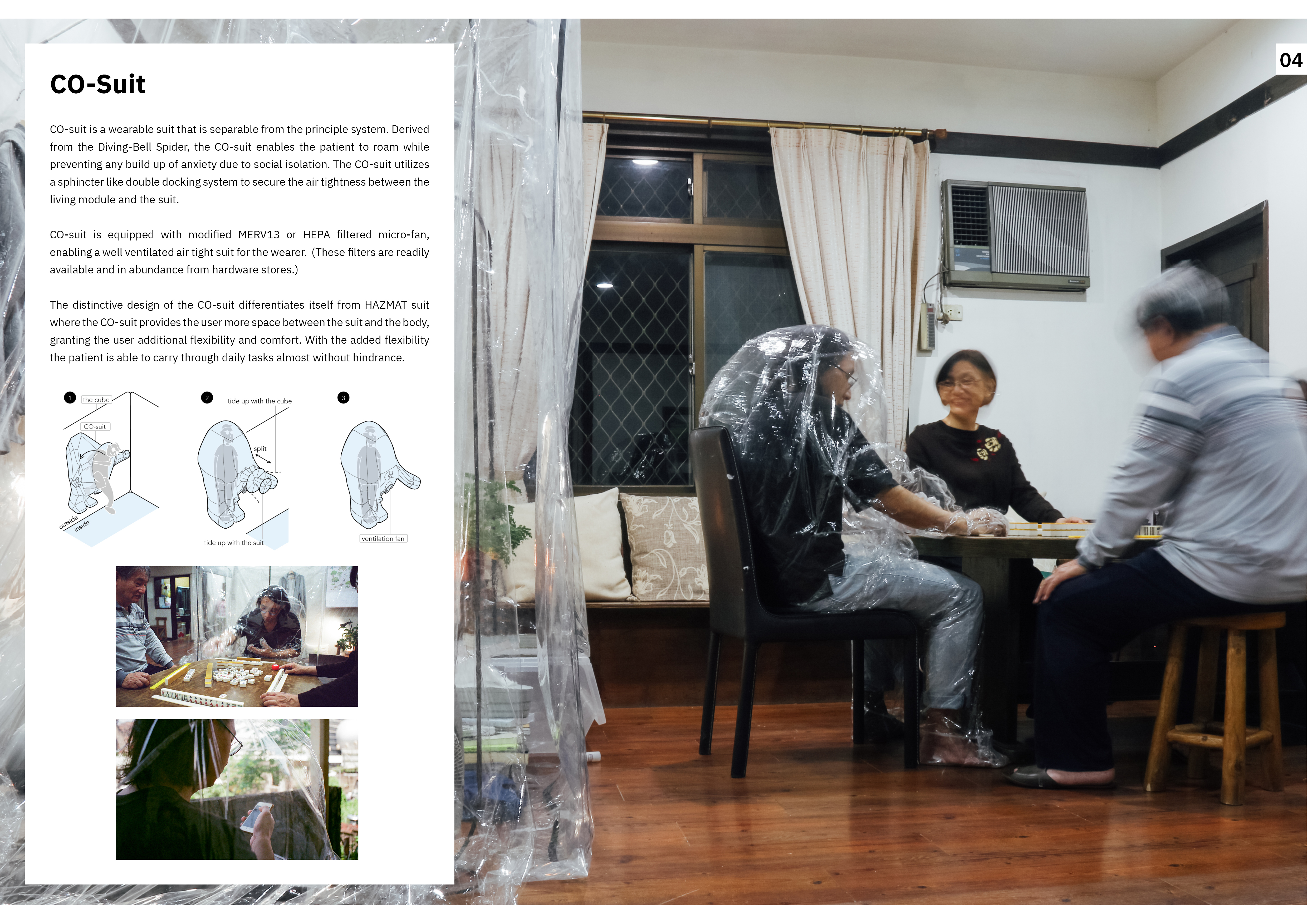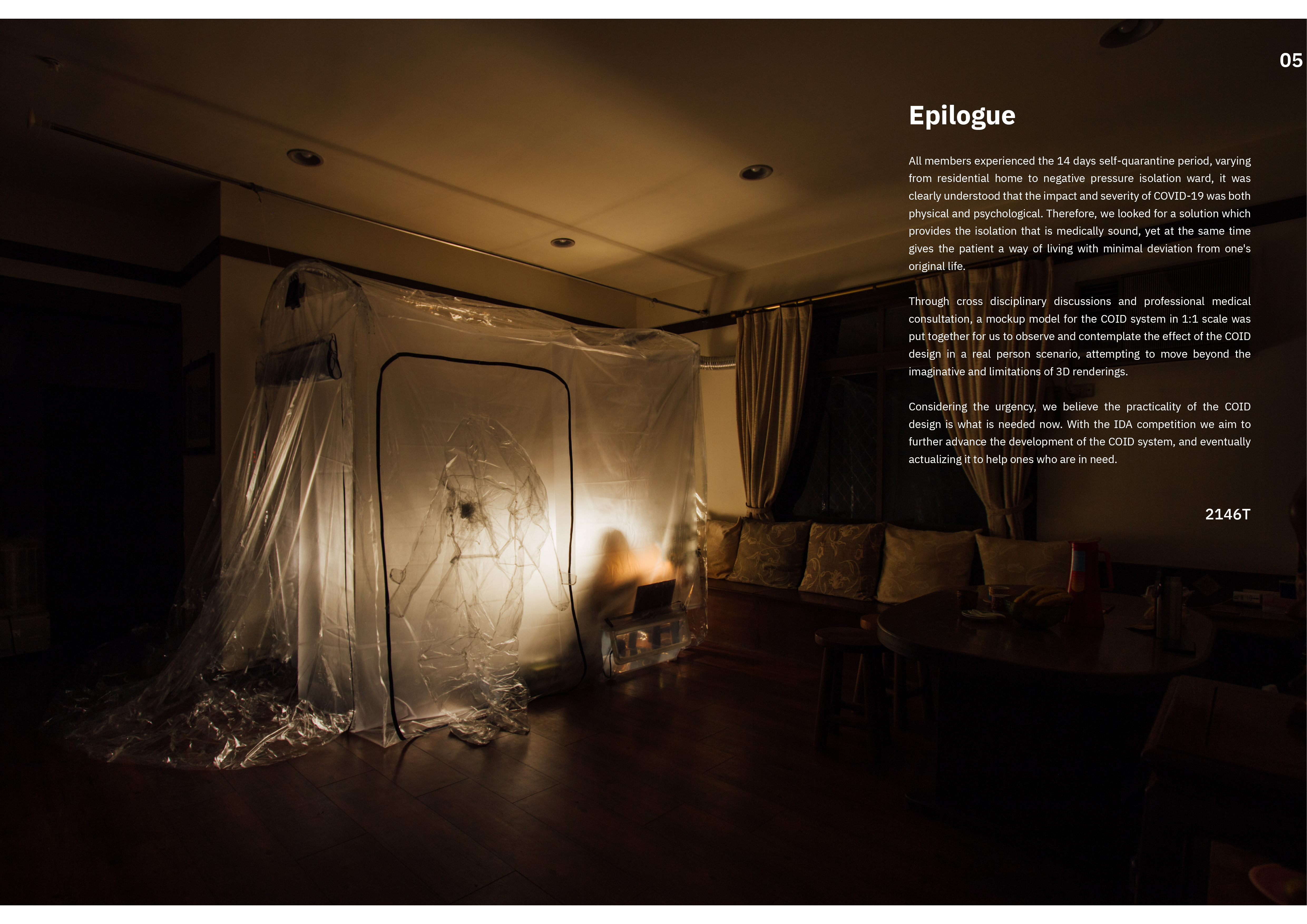Chih-Kang Hsu
Concept description
COID, or CO-habitat Independent Diving-Bell, a play on words on the name of novel Coronavirus COVID-19, while the removal of V (virus) from the name signifies the essence of this proposed design.
The proposed design attempts to help individuals who are experiencing self-quarantine to do so in a manner that is both psychologically and physically balanced yet without compromising any medical and health concerns.
According to data from our medical consultants, CEO of YongLin Healthcare Foundation, and thoracic specialist Dr. CH. Chen, the most common infection in home isolation results from isolators and co-residents sharing circulation and having inadvertent contact in small spaces. In addition, being in confined spaces where one cannot interact with others for a long period of time also brings a significant impact on psychological and social relationships.
Attempting to address the high susceptibility of cross-infection rates within the high-density, small living residential compounds of typical Asian cosmopolitans, the design strategy calls for a design that is: compact, compressible, and minimal disturbance.
The design introduces elemental modules that serve as the main living quarters of the patient who is under-going self-quarantine, however with the addition of the CO-suit, individuals are not only confined in their base module, but suddenly gains the freedom to roam as well as the ability to interact with its co-habitants while no compromisation of safety and sanitation are made.
The design concept of COID comes from Diving-Bell Spiders (Binomial Name: Argyroneta aquatica), where an oxygen bubble - a diving bell-like structure is formed around the spider to allow the spider to have the freedom living in-between land and water.
